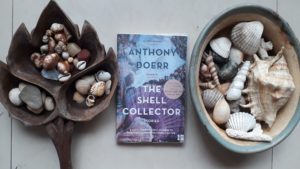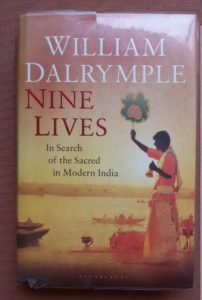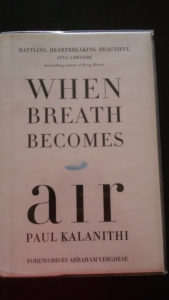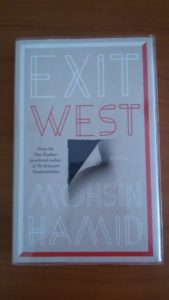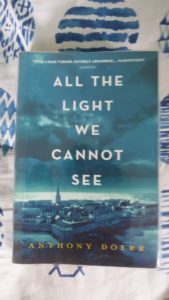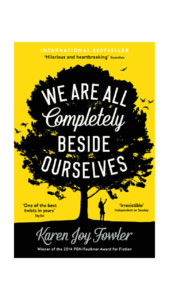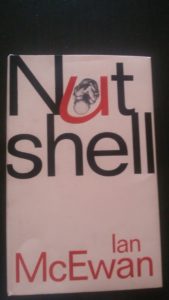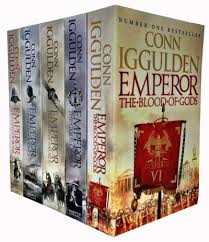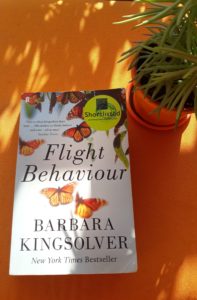
This story is set in a small town in the US Bible Belt, where three generations of a family are trying to eke out a living on a failing farm. There’s the main protagonist, Dellarobia Turnbow, her husband, her in-laws and her two young children. A couple of business decisions by the family patriarch, Dellarobia’s father-in-law, that have gone bad in the wake of the economic downturn have pushed the family deep into debt. The only way out seems to be the logging of the trees on the family property.
However, everything changes when a strange, unexplained natural (or rather, ‘unnatural’) phenomenon suddenly occurs in the hills marked to be logged. Word spreads rapidly, the local church declares it a miracle of God, and Dellarobia, the first person to have discovered the phenomenon, becomes an instant celebrity. Dellarobia, who has always regretted her limited life in the town, suddenly discovers that, as her friend puts it: “You don’t need to go anywhere. Sounds like the world is beating a path to your door.”
Among the steady stream of visitors to the farm are Dr. Ovid Byron and his team of scientists, who raise the possibility that the phenomenon is perhaps not a wondrous beauty, but a terrible one, yet another symptom of a planet “running a fever”. At first, Dellarobia resents the scientists for appropriating the one special thing in her otherwise unspectacular life. She has very mixed feelings for Dr Byron—a mixture of awe and infatuation, and also resentment for how she imagines he views her and her family. She knows she can never explain to him the series of unfortunate circumstances and bad choices that eventually led her to her current circumstances: “He would simply ask why she didn’t try to go to school afterward. People who hadn’t been through it would think it was that simple: just get back on the bus and ride to the next stop. He would have no inkling of the great slog of effort that tied up people like her in the day-to-day.” But eventually, her association with the scientists widens her perspective of the world beyond her immediate surroundings, and of her own self-image and identity beyond her family.
Meanwhile, as everyone from environmental activists (“tree-huggers” as the father-in-law contemptuously calls them) to TV reporters to casual tourists descend on their farm, the Turnbow family is slowly coming apart—there’s the practical father-in-law who’s impatient to log “his trees”, the religious mother-in-law who is opposed to any such travesty against God, the simple husband who has gone through life keeping his head down and doing whatever needs to be done, and Dellarobia herself who sees in the phenomenon a release, however temporary, from a life she finds suffocating.
Kingsolver takes a fraught topic like climate change and makes it into something deeply personal and relatable. But at no point does she sugarcoat things:
“…but you can’t stand up and rail against the weather. That was exactly the point of so many stories Jack London and Ernest Hemingway, confidence swaggering into the storm: Man against Nature. Of all the possible conflicts, that was the one that was hopeless. Even a slim education had taught her this much: Man loses.”
Or, as Dr. Ovid says to a climate sceptic news anchor: “We are the top of Niagara Falls, in a canoe … We got here by drifting, but we cannot turn around for a lazy paddle back … We have arrived at the point of an audible roar. Does this strike you as a good time to debate the existence of the falls?”
It’s not just climate change that she tackles. Kingsolver effortlessly weaves in elements of the income divide, the rural-urban divide, the educational divide, the generational divide, the religious divide, the geographical divide, and the political divide into the story without sounding preachy.
And always, in the background, looms the tall, silent presence of the planet itself—sending signals, subtle and overt, that there is something much more important at hand, that we had better get our act together, else there will be nobody, no matter on which side of whichever divide they stand, who will be left untouched by the consequences.
